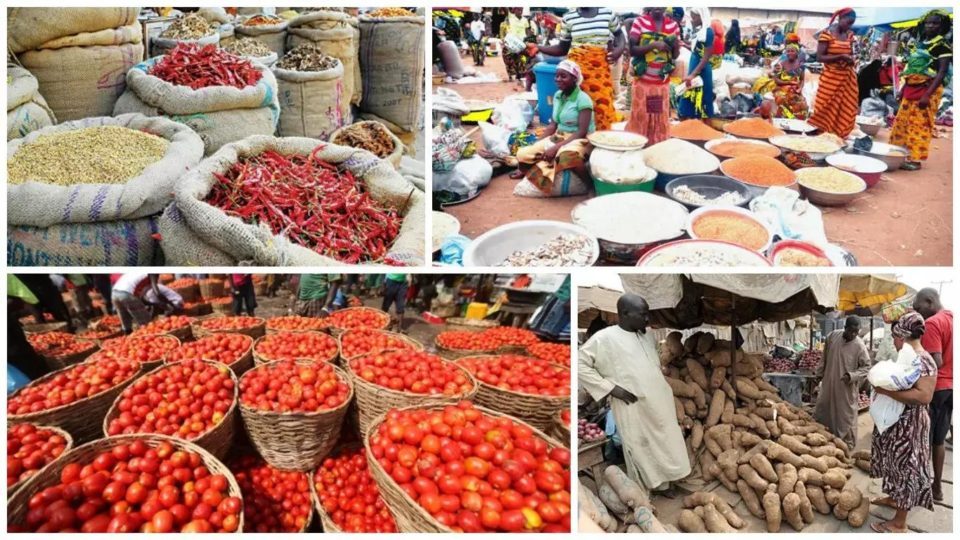

Nigeria recorded an increase in inflation rate in January, hitting 21.82 per cent, after experiencing a fall in the previous month, the latest data from the National Bureau of Statistics have revealed.
This is coming amid the uncertainties being experienced by Nigerians due to the scarcity of the redesigned naira notes and fuel.
The inflation rose to 21.82 per cent compared to 21.34 per cent in December, the NBS announced on Wednesday.
It stated that the January 2023 inflation rate showed an increase of 0.47 per cent points when compared to December 2022 inflation rate, it said.
Nigerians have in recent weeks faced an unprecedented cash crunch as a result of the naira redesign policy of the Central Bank of Nigeria (CBN).
The crisis has plunged many citizens into hardship, with numerous others finding it extremely difficult to meet their basic daily needs.
The Nigerian Governors’ Forum last week warned that the policy may drive the nation’s economy into a recession.
In its inflation report Wednesday, the NBS said that increases were recorded in all Individual Consumption by Purpose (COICOP) divisions that yielded the headline index.
It stated, “However, on a year-on-year basis, the headline inflation rate was 6.22 per cent points higher compared to the rate recorded in January 2022, which was 15.60 per cent.
“This shows that the headline inflation rate (year-on-year basis) increased in January 2023 when compared to the same month in the preceding year (i.e., January 2022).”
The report noted that the contributions of items on a class basis to the increase in the headline index are bread and cereal (21.67 per cent), actual and imputed rent (7.74 per cent), potatoes, yam and tuber (6.06 per cent), vegetables (5.44 per cent), and meat (4.78 per cent).
“On a month-on-month basis, the percentage change in the All-Items Index in January 2023 was 1.87 per cent, which was 0.15 per cent points higher than the rate recorded in December 2022 (1.71 per cent).
“This means that in January 2023, on average, the general price level was 0.15 per cent higher relative to December 2022.
“The percentage change in the average CPI for the twelve months period ending January 2023 over the average of the CPI for the previous twelve months period was 19.36 per cent, showing a 2.49 per cent increase compared to 16.87 per cent recorded in January 2022,” the report said.
The food inflation rate in January 2023 was 24.32 per cent on a year-on-year basis, 7.19 per cent points higher compared to the rate recorded in January 2022 (17.13 per cent).
The bureau said the rise in food inflation was caused by increases in prices of bread and cereals, oil and fat, potatoes, yam and other tubers, fish, vegetables, fruits, and meat.
The report added that all items less farm produce or core inflation, which excludes the prices of volatile agricultural produce, stood at 19.16 per cent in January 2023 on a year-on-year basis, up by 5.29 per cent when compared to the 13.87 per cent recorded in January 2022.
The report said the highest increases were recorded in prices of gas, liquid fuel, passenger transport by air, vehicle spare parts, fuels, and lubricants for personal transport equipment, solid fuel, among others.
NNPP lawmakers seek to rejoin APC after fallout with Kwankwaso Several top lawmakers of the New…
Naira rises to N1,618/$ in parallel market The naira yesterday appreciated to N1, 618 per dollar…
I’m capable of becoming Nigeria’s president — Makinde Oyo State Governor Seyi Makinde on Tuesday said he…
Outrage over video of police officers collecting cash from Chinese man A video currently making the rounds…
Nigerians lose N1.3tn as ponzi scheme CBEX collapses Thousands of Nigerians face financial ruin after the…
Lasaco Assurance Plc attains ISO/IEC 27001:2022 Certification for Information Security Management Lasaco Assurance Plc, one…